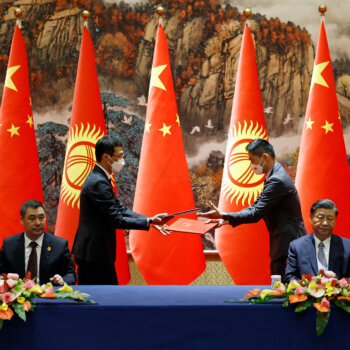Key Takeaway:
Misinformation is the top risk facing society over the next two years, with key elections in the US, UK, and other nations this year. Many people share political news online, with some sharing it by mistake. Around 20% of people report having shared a story they later found out was untrue, while around one in 10 admits sharing political information they knew at the time was untrue. Some people deliberately spread lies to achieve personal objectives, such as attacking others or manipulating them. In contrast, some people share political news with the best intentions, such as protecting others, encouraging right-doing, or promoting social or political engagement. Sharing false stories may have unintended political consequences, such as increasing cynical perceptions towards election campaigns and politicians.
Misinformation is the number one risk facing society over the next two years, according to the World Economic Forum. With key elections due in the US, UK and many other nations this year, an onslaught of political misinformation can be expected.
Some of this material is distributed through paid advertising on social media, like the AI generated “deep fake” videos of British prime minister Rishi Sunak doing the rounds. However, we know that much of the spread of false material is due to the actions of individual social media users.
Many people share political news online. Inevitably some of that news is false. Fake political news is, after all, common. It’s not unusual to see it as you scroll through your social media feeds.
One of the main ways in which fake news spreads is when people share it to their own social networks. Some genuinely believe the story to be true and share it by mistake. We’ve found that around 20% of people report having shared a story they later found out was untrue.
However, like other researchers, we also find that around one in 10 people admit sharing political information that they knew at the time was untrue.
Why would these people deliberately spread lies? Are they deliberately setting out to do harm? Or do they perhaps think it’s acceptable to spread because it supports ideas they hold strongly and “might as well be true”?
Meaning well, meaning ill
Only a minority of people share false information but, given the vast scale of social media platforms, even that can lead to fake stories spreading like wildfire. This makes it harder for people to get news they can trust and leads people to believe things that simply aren’t true.
Our research revealed that some people shared fake stories because they thought they were funny (one said because they thought it was “ludicrous”, for example). Others shared the misinformation specifically to highlight that it was false. Others minimised the harm they were doing by suggesting it wasn’t actually that serious if they shared fake news.
Our findings reveal that some people behave in an antisocial way when it comes to fake news, deliberately sharing false information to achieve some personal objective, even if it means attacking other people or trying to manipulate them. Sharing false stories in this way can be used, for example, to affect people’s political views, whether by supporting a smear campaign against a politician or by boosting a politician’s clout.
People driven by such reasons seem not to be bothered by whether the news they are sharing is true or false, and may even view sharing news as a means of manipulation. At the very least, these people are being uncaring about the harmful effects of their actions.

In sharp contrast to these, some people share political news, whether true or false, with the best intentions. They seem to see sharing fake news as a way to make the world better.
“Good” reasons for sharing can reflect a desire to protect others (for example, by alerting them to potential dangers), to encourage people to “do the right thing”, or even to become socially or politically engaged. Other people may use news sharing as a force for good by pointing out that a particular story is false. Ironically though, that means the false story may spread even further.
Dealing with fake news
People can have strong reactions when they see a friend or family member sharing material they know is untrue. This is not a big surprise because misinformation tends to rely on negative sentiment and to appeal to our morals. It is the stories that make us emotional (for example by scaring us) that go viral in the first place.
However, the next time you see someone sharing a story you know to be false, and you think about giving them a piece of your mind or blocking them, remember that they may be unaware that they were doing harm and may even have been trying to do good. It may be that they were thinking only about themselves, but it may also be they have shared that story thinking that it benefits others.
Sharing false stories, even when done with the best intentions, may have implications that go beyond people’s personal goals for sharing. When people expose others to misinformation in order to debunk it, they are potentially risking unintended political consequences such as increasing cynical perceptions towards election campaigns and politicians.
One way to reduce this risk and support the battle against misinformation is to follow guidance on how to report false stories, for example by marking them as false on the platform.
And if you yourself are tempted to share material that might not be true — for whatever reason — it is best to find other ways to get your message across.





























